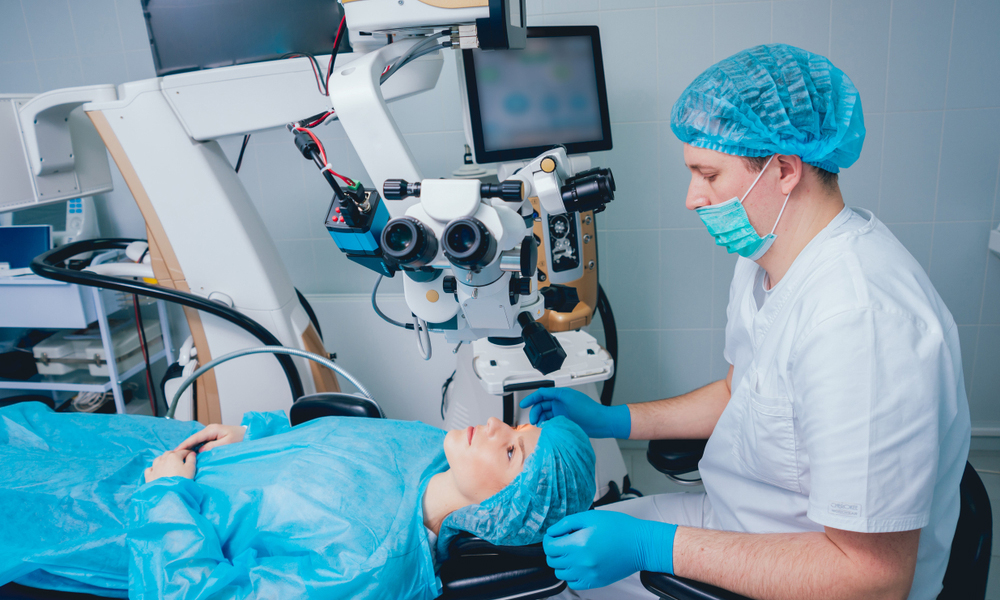-
 Toll Free No 9146-744-744
Toll Free No 9146-744-744 - Appointment
Near-sighted, far-sighted, or astigmatic people can often have their vision corrected through Minimally Invasive Lasik Surgery.
One of many vision-correcting treatments includes reshaping the cornea, the transparent front part of the eye, to focus light on the retina at the back. Up to 98% of those who wear glasses or contact lenses and have myopia, hyperopia, astigmatism, or presbyopia may be good candidates for Lasik laser eye surgery.



It is a minimally invasive procedure to treat refractive defects safely and effectively. With the advancements in laser technology and medical equipment, the MIS Lasik surgery proved better vision and a quicker recovery.
Since the doctor applies lubricating or numbing eye solutions before the surgery, LASIK is not painful. Usually, the patient experiences no pain or discomfort during the procedure.
Yes, it can be done twice if necessary. Lasik surgery can be repeated to rectify regressed vision, and the process is safe.
The total cost is determined by several factors and varies with each patient
You will recover within 24-48 hours, but overall recovery may take a month
Because it reshapes the cornea and corrects the refractive problem, LASIK is a permanent solution for hazy vision. The majority of patients who have lasik surgery have had steady eyesight for at least ten years.
Complications with the LASIK flap - The LASIK flap is initially quite delicate. To heal correctly, it must remain in its current location without being disturbed. If you rub your eyes, you run the risk of shifting the flap and delaying recovery.
OUR PROCESS IS EASY contact us for More information.
Copyright © 2023 hospione.com - All Rights Reserved | Developed by Digital Marketing StudioGenix LLP